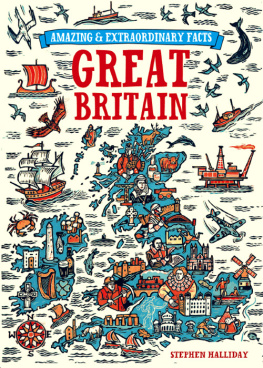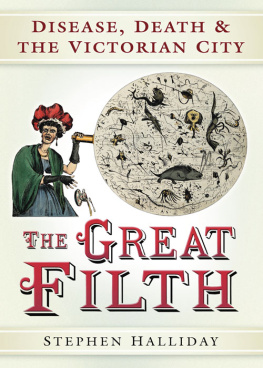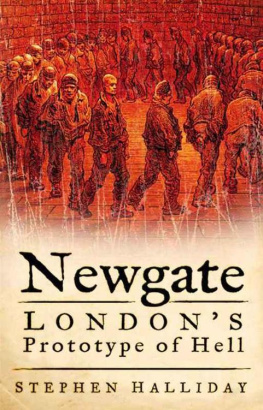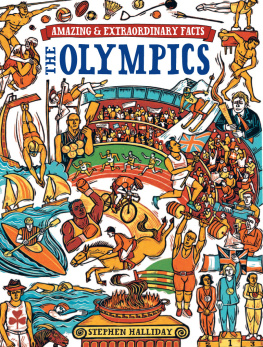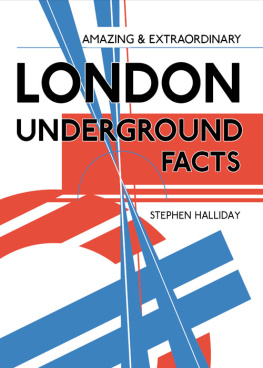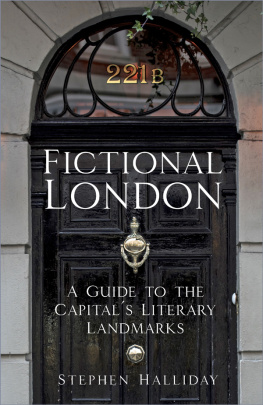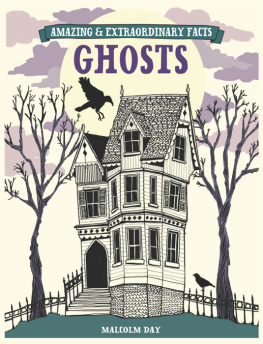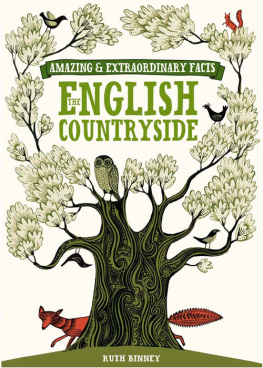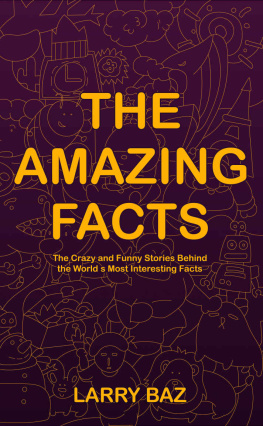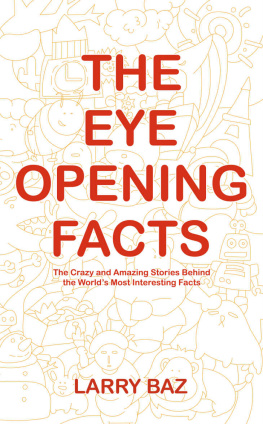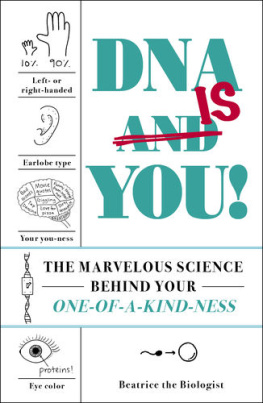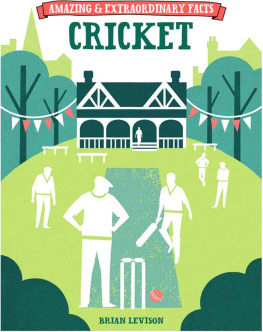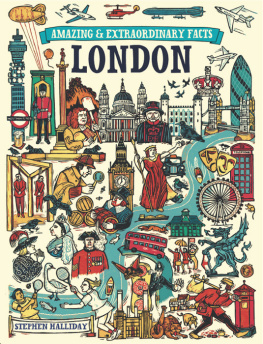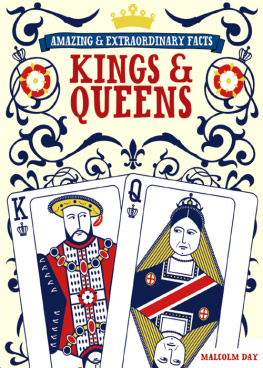
GREAT
BRITAIN
STEPHEN HALLIDAY

CONTENTS
Britains continental connection
A land of contrasts
Britains first immigrants
England, Scotland, Wales, Ireland
The pre-eminence of the English language
Britains beautiful game: football
Liverpool attracts all sorts
Just call Boadicea
Fair trading at Applebys horse fair
Glasgows green spaces and curry houses
The oldest churches in Britain
Oxfords dreaming spires
Cross-roads of early British Christianity
Belfasts Titanic shipbuilding feats
Ancient Lincoln in need of repair
Local boys done good, too
Boating at altitude
Alfred the Greats old organ
Rosslyn hits the limelight
Scarborough takes a pounding from the sea
Scones for afters?
The bracing charms of Skeggy
Sieges of Harlech
Woking: gateway to the Gods
Berrows Worcester Journal
The birthplace of British industry
Derrys identity crisis all in the name of religion
Ealing in black-and-white
Resting place for a poet and a heroine
The Princes in the Tower
The revolting Boadicea
King Arthurs Round Table
The life and times of Alfred the Great
Aethelred and Canute in need of better advisers
Wayward Hanoverian son checks out in style
Shakespeares shortest tragedy: the Scottish Play
Destiny of Scotland not set in stone The Guardian of Scotland
William Wallace Braveheart
Mary, Queen of Scots
Welsh princes: a quarrelsome lot
Beating the Christmas rush at Westminster Abbey
George IV: double-chinned son of a lunatic
Worlds first appendectomy a success for new king
The Scandals of Edward and Mrs Simpson
Henry II bashes a bishop in the name of the law
What did Englands worst kings do for us?
The Welsh unknown who won the Battle of Naseby
Native American princess unimpressed by Britain
Fish and Chips: Britains culinary gift to the world
Dieting to death: a Stark choice
Medieval peasant food
The story of British bread
Good for infants, depressed students and disease transmission
The British love of good beer
Whisky: the Celtic tipple of choice
In defence of the sweet stuff
A natural history of the haggis
In other news, potatoes cause leprosy
The British love affair with tea
Lake District ordeal for Nobel prize-winner
The National Birthday Trust Fund
Detecting fraudulent and deleterious adulterations
But called fizzy wine for copyright reasons
The ripe realities of early recycling
Mrs C: a fine cook and a better haggler
Scurvy and the French Navy defeated by British grocers
Bandits and covenanters
The historical reluctance to answer back
William the Conquerors heritage and the Jewish community in Britain
Ignore history at your peril
Chaucers woolly stock-in-trade
The crafty cardinal and the lost monasteries
British efforts to prevent trade in untaxable contraband
A window into revenue-generation
Income tax: just a temporary arrangement, right?
Scotland declared bankrupt chasing an American dream
Prototype financial crisis caused by investments no-one understood
Punishments of the Infamous, Pecuniary and Corporal varieties
Incarceration or the army
The unexpected risks to impersonating a pensioner
The many faces of Robin Hood
Shakespeares lost years
Inventing the lavatory
Francis Bacon felled by frozen chicken
The genius of Isaac Newton
Edward Jenners gamble
Who really invented the steam engine?
Horatio the family man
The Iron Dukes affairs
Brunels less famous father
Charles Darwins early years
Dickenss dysfunctional family
Florence Nightingales gift for maths
Rowland Hills revolutionary idea
Alexander Graham Bells aid for the deaf
The first lady doctor
Robert Louis Stevensons family trade
Baden-Powell mobilizes the young
Churchills epic career
aka Lawrence of Arabia
Britains famous spies
Honoured at the pub
INTRODUCTION
N o nation has had a greater impact on the world than that small island off the north-west coast of Europe on which an obscure Germanic tribe landed some time in the fifth century AD, shortly after the Romans had left. They joined the native Celts and were soon joined by other immigrants: Vikings from Norway and Denmark; Normans from France; Catholic Irish and, from France again, Protestant Huguenots, fleeing persecution in their native land. Then came Jews from Eastern Europe and Russia and, in the twentieth century, immigrants from every corner of the British Commonwealth, bringing with them ideas and skills as well as vocabulary which would help to turn the dialect of that Germanic tribe into the language of the world. Many aspects of British history and culture are taught to people in foreign lands. They are taught about Magna Carta, Parliamentary democracy and the rule of law but very few Britons know that the Common Law, one of Britains gifts to the world, was the brainchild of a king who is better known for the murder of an archbishop. We take much for granted in our heritage. This book explores some aspects of that heritage that are less well known than they deserve to be.
Some of these are important, others are bizarre and some are both. For example Edward Jenner, who overcame the scourge of smallpox through vaccination would, in a more enlightened age such as ours, have been struck off the medical register for the way he went about his research. If Charles Darwin were an undergraduate at Cambridge in the twenty-first century he would probably be sent down for idleness and riotous behaviour. His father despaired of him. And is it really true that sauerkraut, pickled cabbage, not only helped Captain Cook to annex Australia to the British crown but also helped Britannia to rule the waves? And while were on the subject of food, how was it that the British population was better fed in the Second World War than it has ever been, before or since?

